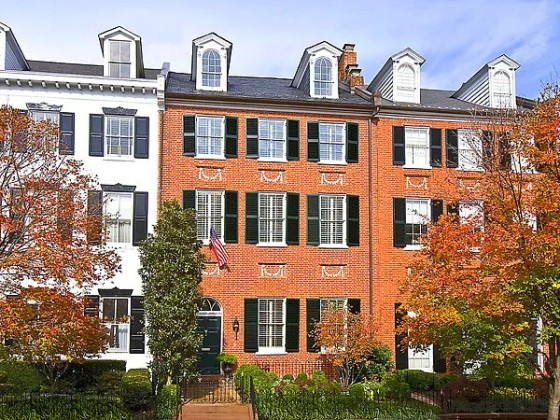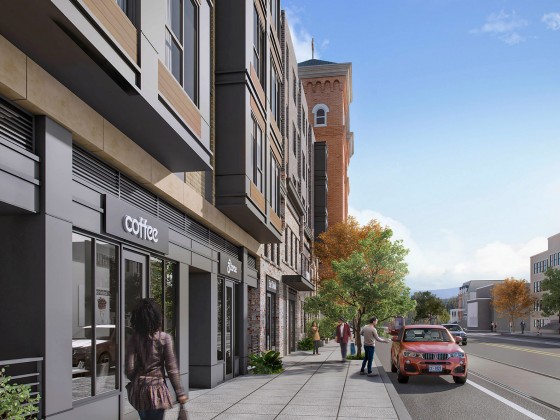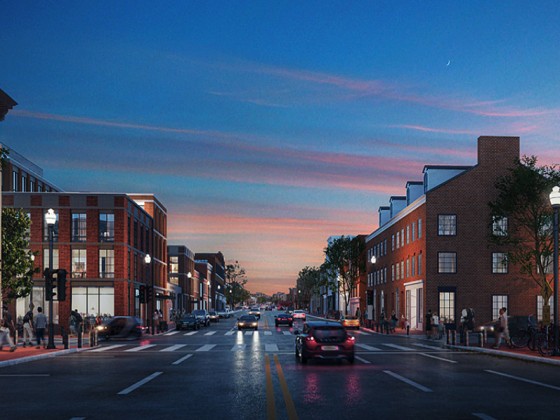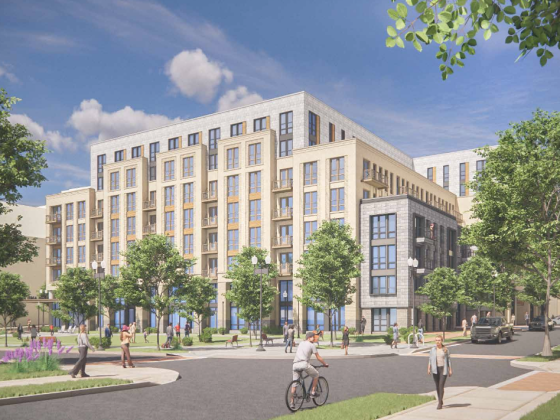What's Hot: The Zones That Could Lead To More Development in Chevy Chase Set To Go Before Zoning Commission
 How Presidential Candidates' Housing Plans May (or May Not) Affect the DC Area
How Presidential Candidates' Housing Plans May (or May Not) Affect the DC Area
✉️ Want to forward this article? Click here.
The Center for Washington Area Studies (CWAS) has released a report on the housing plans being put forth by seven Democratic presidential candidates, and a recent panel at George Washington University dug deeper into the potential local impact of those plans.
The panelists seemed to agree that, more than having a substantive impact on housing locally, much less nationwide, the existence of the plans and the resulting conversations is a step in the right direction, despite the topic not yet coming up in the Democratic debates.
On the topic of affordable housing production, Ramon Jacobson, executive director of nonprofit Local Initiatives Support Corporation (LISC) DC, noted that proposals which include expanding the Low-Income Housing Tax Credit and Capital Magnet Fund programs could be a boost to nonprofits like LISC. Otherwise, the extent to which most of the candidates' proposals would help those in need of housing relief would be heavily dependent on how the proposals are enacted.
For example, Kamala Harris' plan suggests a tax credit for renters who pay more than 30 percent of their income toward housing; however, the panelists expressed skepticism that this would do anything to aid housing production or affordability. Michelle McDonough Winters, executive director of Alliance for Housing Solutions, said that, as proposed, such a tax credit would only apply to about 30-40 percent of renters, and that the market rate could be distorted in response.
story continues below
loading...story continues above
"If what we're trying to do is make rent more affordable, I think we have a lot more work to do in the housing supply area, especially for the more moderate and lower income levels, where no matter what's going on in the market, they're still going to have a hard time affording housing."
Cory Booker and Julián Castro include similar tax credits in their proposals. Castro's plan would offer housing vouchers to all households earning less than 50 percent of area median income (AMI) and tax credits for households earning between 50 and 100 percent AMI.
Regarding Bernie Sanders' nationwide rent control proposal, McDonough Winters noted that the plan could hit a brick wall in states, like Virginia, where the state government prevents local jurisdictions from passing tenant-friendly laws.
"One of the other things that we deal with on the Virginia side of the river is a state that is not necessarily as supportive or open to us making our local decisions," she pointed out. "If we wanted to do rent control, we would not be allowed to. We can't create a tenant right-to-purchase act, like in DC, because they wouldn't let us."
This local-state power struggle also has implications for the production of housing, particularly when it comes to areas where multifamily housing is an anomaly. McDonough Winters posited that tying in transportation and school funding may be the only way to incentivize multifamily housing production in traditionally NIMBY neighborhoods by disempowering arguments which point to a strain on those resources.
Jacobson argued that, to overcome NIMBY opposition, candidates should frame multifamily housing production as a net benefit to single-family homeowners, as the businesses these homeowners love need density to support them.
"I think these people, even in the wealthier suburbs, are seeing their stores close," Jacobson said. "They're seeing major corridors that were the foundation of suburban life vacating. Understanding that [density is] how you're going to develop vibrancy and sustain the vibrancy of your community, I think there's an appeal to it much more so than a homeowner taking responsibility for the racial segregation history of policies they had to participate in to be a homeowner."
One of the most well-known of those segregationist policies was redlining, which a few candidates, including Harris, Elizabeth Warren and Pete Buttigieg, specifically aim to redress in their plans. The GW panelists agree with a recent report that place-based solutions, often advocating for down-payment assistance for long-term residents of redlined communities, do little for those most harmed by redlining, many of whom were displaced. For the DC area, whether a place-based approach to redlining would even be applicable is heavily dependent on how redlining is defined.
Panelist Alex Baca of Greater Greater Washington noted that while it is important to compensate in some way for the impact of Black people being excluded from intergenerational wealth creation via homeownership, it is also worth uncoupling homeownership from wealth-building in America, and a more direct form of reparations may be a more useful way to redress redlining and the like.
"I don't want to take away the power of what it means to have access to land when you didn't, or access to property when you didn't, but there's a reason that "The Case for Reparations", which arguably kicks this conversation off, doesn't end with down payment assistance; it ends with reparations," Baca said.
Overall, the true measure of whether any of the candidates' proposals have an impact on housing policy and affordability could be less tangible, but may shape more local conversations on the subject.
The candidates whose plans were in the CWAS report can be found here:
- Senator Cory Booker
- Mayor Pete Buttigieg
- Former HUD Secretary Julián Castro
- Senator Kamala Harris
- Senator Amy Klobuchar
- Senator Bernie Sanders
- Senator Elizabeth Warren
Thumbnail photo courtesy of Ted Eytan.
See other articles related to: affordable housing, exclusionary zoning, housing discrimination, housing plan, housing plan in u.s., housing policy, nimby, presidential candidates, redlining, reparations
This article originally published at https://dc.urbanturf.com/articles/blog/how-current-presidential-candidates-housing-plans-may-or-may-not-affect-the/16057.
Most Popular... This Week • Last 30 Days • Ever

A look at the closing costs that homebuyers pay at the closing table.... read »

3331 N Street NW sold in an off-market transaction on Thursday for nearly $12 million... read »

Today, we take an updated look at the pipeline of larger residential development on t... read »

The development group behind the hotel has submitted for permit review with DC's Hist... read »

The volunteers trying to protect birds from DC's glass buildings; a Georgetown reside... read »
DC Real Estate Guides
Short guides to navigating the DC-area real estate market
We've collected all our helpful guides for buying, selling and renting in and around Washington, DC in one place. Start browsing below!
First-Timer Primers
Intro guides for first-time home buyers
Unique Spaces
Awesome and unusual real estate from across the DC Metro














